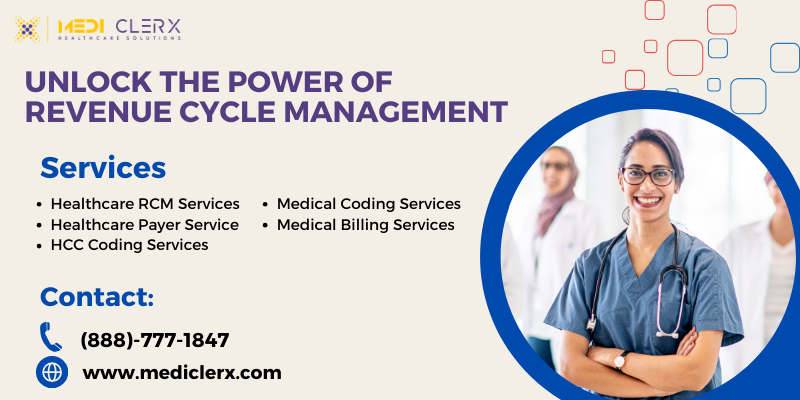In the complex landscape of healthcare, efficient revenue cycle management (RCM) is essential for healthcare organizations to thrive financially while providing quality care to patients. Revenue cycle management encompasses the entire process of managing claims, payments, and revenue generation, from patient registration to final payment collection. In this article, we’ll explore the critical role of Healthcare RCM Services in optimizing revenue cycle management and improving the financial health of healthcare providers.

1. Streamlining Administrative Processes: Healthcare RCM services play a crucial role in streamlining administrative processes throughout the revenue cycle. From patient registration and insurance verification to claims submission and payment processing, RCM services automate and optimize various tasks, reducing manual errors and inefficiencies. By streamlining administrative workflows, RCM services help healthcare providers save time and resources while improving overall operational efficiency.
2. Maximizing Revenue Capture: One of the primary objectives of RCM Services Healthcare is to maximize revenue capture for healthcare providers. RCM specialists meticulously review patient encounters, documentation, and coding to ensure accurate and timely billing. By identifying and addressing potential revenue leakage points, such as coding errors, denials, and underpayments, RCM services help healthcare organizations capture every dollar they’re entitled to, thereby maximizing revenue generation.
3. Enhancing Claims Management: Efficient claims management is essential for healthcare providers to receive timely reimbursement for services rendered. Healthcare RCM services leverage advanced technologies and industry best practices to expedite claims processing and minimize claim denials. RCM specialists monitor claims throughout their lifecycle, proactively addressing issues and resubmitting rejected claims to ensure prompt payment. By optimizing claims management, RCM services help healthcare organizations improve cash flow and reduce revenue cycle bottlenecks.
4. Improving Revenue Cycle Transparency: Transparency is key to effective revenue cycle management, allowing healthcare providers to track the status of claims, monitor key performance indicators, and identify areas for improvement. Healthcare RCM services provide comprehensive reporting and analytics tools that offer insights into revenue cycle performance, claim trends, denial rates, and reimbursement patterns. By empowering healthcare providers with actionable data and real-time visibility, RCM services enable informed decision-making and strategic planning to optimize revenue cycle outcomes.
5. Ensuring Regulatory Compliance: The healthcare industry is subject to numerous regulatory requirements and compliance standards, which can pose significant challenges for revenue cycle management.Medical RCM Services stay abreast of evolving regulations, such as HIPAA, ICD-10, and Medicare guidelines, to ensure compliance throughout the revenue cycle. RCM specialists undergo continuous training and education to maintain proficiency in regulatory requirements, minimizing the risk of compliance violations and associated penalties for healthcare providers.
6. Enhancing Patient Experience: Effective revenue cycle management is not only about financial optimization but also about enhancing the overall patient experience. Healthcare RCM services focus on streamlining billing and payment processes, providing clear and transparent communication with patients regarding their financial responsibilities. By offering convenient payment options, facilitating insurance claims processing, and resolving billing inquiries promptly, RCM services contribute to a positive patient financial experience, fostering patient satisfaction and loyalty.
You Can Also Visit Us : –
In conclusion, healthcare RCM services play a vital role in optimizing revenue cycle management and improving the financial health of healthcare providers. By streamlining administrative processes, maximizing revenue capture, enhancing claims management, providing transparency, ensuring regulatory compliance, and enhancing the patient experience, RCM services help healthcare organizations achieve greater efficiency, profitability, and sustainability in an increasingly complex healthcare landscape. Partnering with a trusted RCM service provider can empower healthcare providers to navigate the challenges of revenue cycle management effectively and focus on delivering high-quality patient care.
